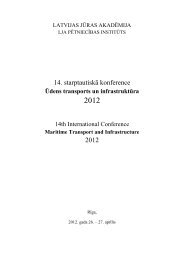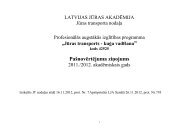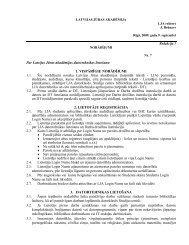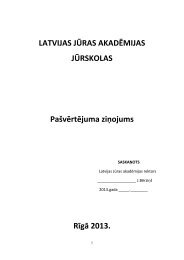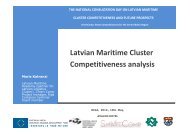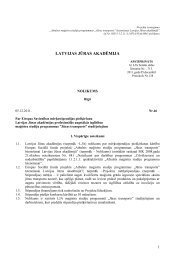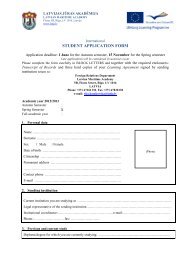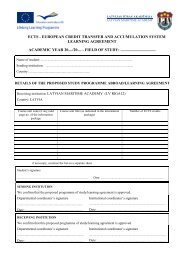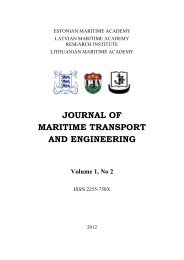You also want an ePaper? Increase the reach of your titles
YUMPU automatically turns print PDFs into web optimized ePapers that Google loves.
Figure 13. Actions of failure code screenConclusionsIn maritime education, application of engine room simulators could reduce the risk of human errorsby understanding engine room systems, engine procedures and safety precautions during operations. Aneffective expert system is necessary for early intervention to prevent all kinds of engine breakdownimmediately. Performances of the engine room could change with having well educated ship crews,experience, well supervised management team, besides related to how they handle situations betweennormal day routines and emergency cases.Because of the code is developed for an educational purpose, all causes related with the failure areshown in case of an alarm situation. It can be used as an educator and an advisor expert system indesktop based system by integrating to the engine room simulator. However, the only way to make thesoftware more professional on the real engine can be achieved by reporting one possible cause for onefailure by the expert system.As of another research project, it can be applied to all main engine and auxiliary engines of modernoceangoing merchant ships by extending this study. The study is also thought to be a good reference formaintenance processes for ship engine officers.AcknowledgementThis paper was prepared by means of the Master Thesis: Kaan Ünlügencoglu, Development andApplication of Simulator Algorithm in Accordance with Ship Main Engine Auxiliary Systems, MScThesis, Yildiz Technical University (2012).References1. Shiihara, H., Sumi, N. A Study on Human Factors in Engine Room technical sessions session:safety, reliability and maintainability. Sixth International Symposium on Marine Engineering ISMETokyo, Vol. 2, 23-27 October, Japan, 2000.2. Hansen, H., L., Nielsen, D., Frydenberg, M. Occupational accidents aboard merchant ships.Occupational and Environmental Medicine, Vol. 59, 2002, pp. 85–91.3. O’Neil, W. A. The human element in shipping. World <strong>Maritime</strong> University, Journal of <strong>Maritime</strong>Affairs, Vol. 2, 2003, pp.95–97.4. Hetherington, C., Flin, R., Mearns, K. Safety in shipping: The human element. Journal of SafetyResearch, Vol. 37(4), 2006, pp. 401–411.5. Cebi, S., Celik, M., Kahraman, C. Er, I. D. An expert system auxiliary machinerytroubleshooting: SHIPAMTSOLVER. Expert Systems with Applications, Vol. 36, 2009, pp. 7219-7227.72



